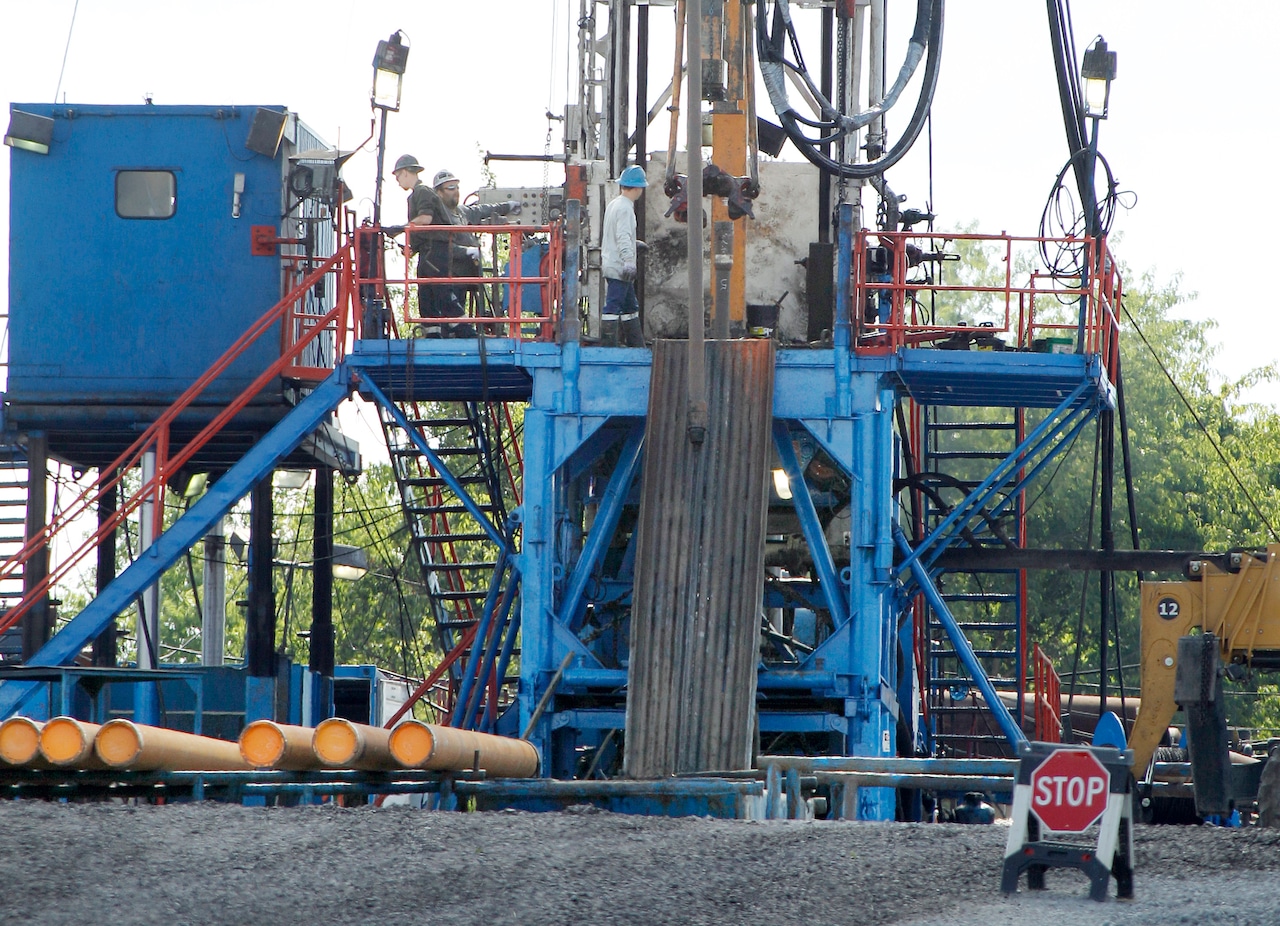- Reaction score
- 1,678
COLUMBUS, Ohio -- Gov. Mike DeWine signed legislation that broadly expands the ability to drill for oil and gas in state parks and also legally redefines natural gas as a source of “green energy.”
A 2011 state law gave state agencies the authority, if they choose, to lease out state lands for oil and gas exploration and production. The bill signed by DeWine on Friday would change that language to say a state agency “shall” accept a lease that meets certain conditions, instead of saying it “may” do so. In other words, it forces an agency to grant the lease application from oil and gas drillers.
The term green energy typically refers to energy derived from the sun and wind, not fossil fuels. Natural gas is a fossil fuel released by digging into the earth that acts as a greenhouse gas via leakage during transport and when it’s combusted. Its main component is methane, a potent heat-trapping gas.
“Characterizing natural gas as green energy is regressive and a fallacy,” said Cinnamon Carlarne, the Robert J. Lynn Chair in Law at the Ohio State University. “Natural gas is not green energy. The labelling is a little bit Orwellian.”
DeWine said in a statement the legislation doesn’t “fundamentally change the criteria and processes” established in 2011. Additionally, he said his administration wouldn’t allow for any new surface use access in state parks. However, this could leave the door open to accessing minerals underneath state lands via surfaces of adjacent properties.
While natural gas produces a smaller carbon footprint than fuels like coal or oil, it produces a much heavier methane footprint, Carlarne said. DeWine’s policy against surface drilling is a positive, but fails to address the climate change or pollution problems with state policies expanding gas drilling.
Neil Waggoner, an advocate with the Sierra Club, largely agreed. He said the legislation will unmistakably expand drilling for resources in state parks.

 www.cleveland.com
www.cleveland.com
A 2011 state law gave state agencies the authority, if they choose, to lease out state lands for oil and gas exploration and production. The bill signed by DeWine on Friday would change that language to say a state agency “shall” accept a lease that meets certain conditions, instead of saying it “may” do so. In other words, it forces an agency to grant the lease application from oil and gas drillers.
The term green energy typically refers to energy derived from the sun and wind, not fossil fuels. Natural gas is a fossil fuel released by digging into the earth that acts as a greenhouse gas via leakage during transport and when it’s combusted. Its main component is methane, a potent heat-trapping gas.
“Characterizing natural gas as green energy is regressive and a fallacy,” said Cinnamon Carlarne, the Robert J. Lynn Chair in Law at the Ohio State University. “Natural gas is not green energy. The labelling is a little bit Orwellian.”
DeWine said in a statement the legislation doesn’t “fundamentally change the criteria and processes” established in 2011. Additionally, he said his administration wouldn’t allow for any new surface use access in state parks. However, this could leave the door open to accessing minerals underneath state lands via surfaces of adjacent properties.
While natural gas produces a smaller carbon footprint than fuels like coal or oil, it produces a much heavier methane footprint, Carlarne said. DeWine’s policy against surface drilling is a positive, but fails to address the climate change or pollution problems with state policies expanding gas drilling.
Neil Waggoner, an advocate with the Sierra Club, largely agreed. He said the legislation will unmistakably expand drilling for resources in state parks.

With stroke of his pen, Gov. Mike DeWine defines natural gas as green energy
Law forces state to accept certain requests to drill for oil and gas in state parks.



